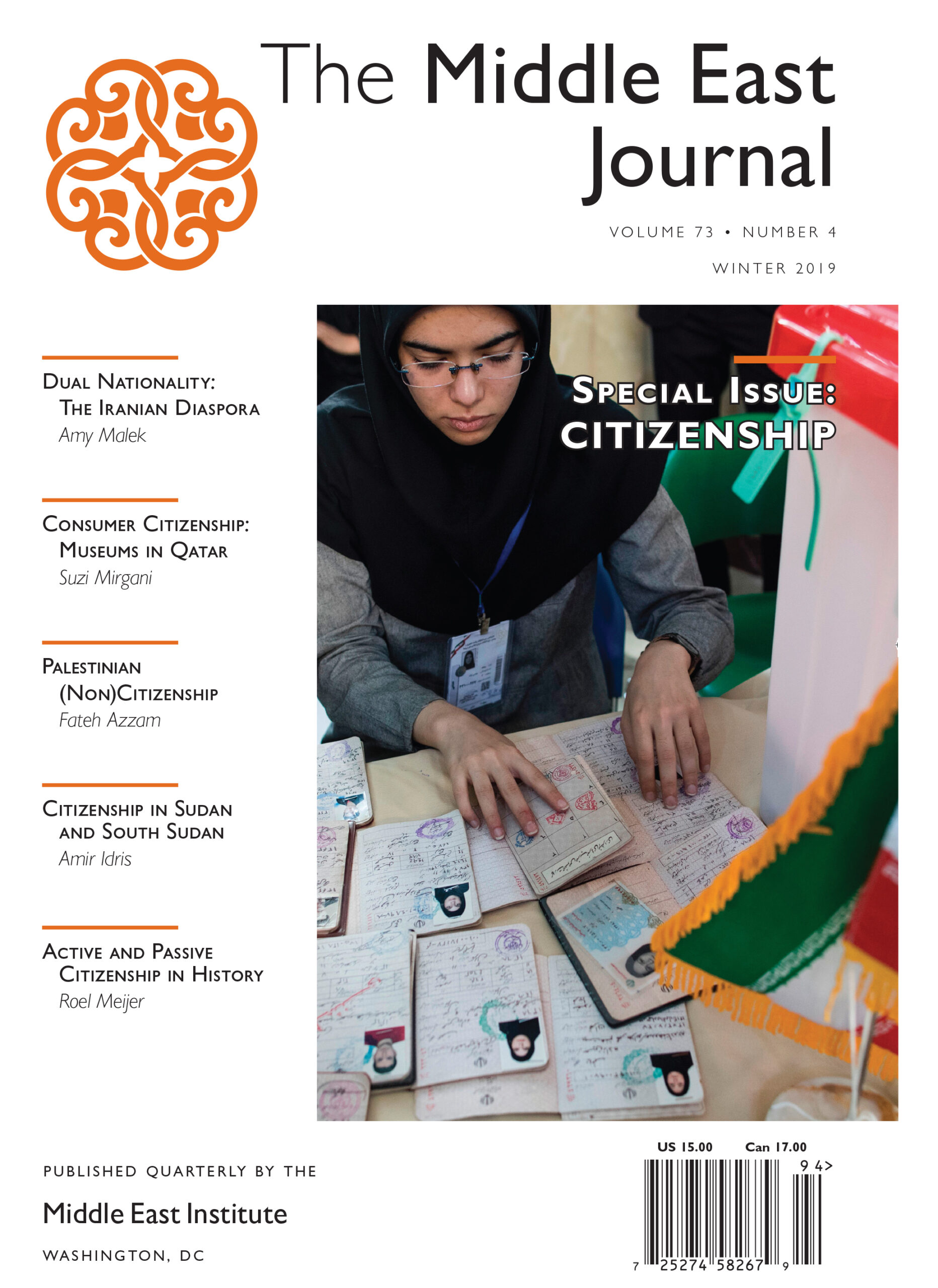Publication


To cite this publication: Zahra Babar, guest ed., “Citizenship,” CIRS Special Issue of The Middle East Journal 73, no. 4 (Winter 2019).
Citizenship is a central feature of the modern nation-state. Neither scholars nor policymakers can provide us with a unified and agreed upon idea of what citizenship means in all places, at all times, and for all people. But, pared down to its most basic construct, citizenship is recognized as being that which establishes the fundamental rules of membership, participation, and belonging for the people who inhabit a particular territory. Citizenship creates the legal instruments and political boundaries that shape the relationship between individuals and the state to which they belong. In the absence of a universal definition of citizenship as a category, there are certainly still universally understood ideas, norms, and notions of what citizenship should be as an aspiration and an ideal. In sum, although citizenship exists and develops within its own local context, as a result of a particular historical trajectory, and based on local social and cultural practices, it is still often bound, even if just in the imagination, to the universal, lofty, and idealized form of itself.